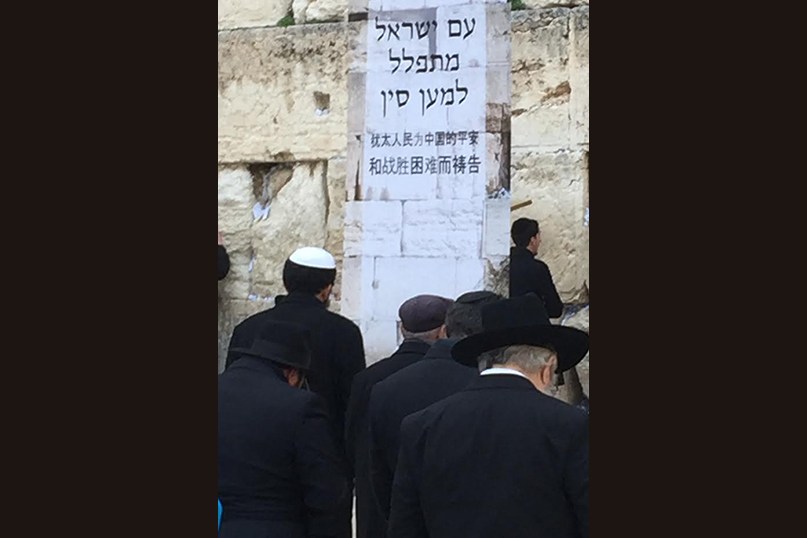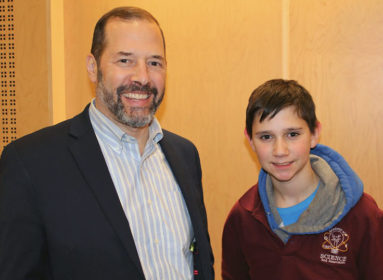
In times of trouble, soul support matters more than economics
By Vera Schwarcz
Sunday, February 16. I just got back from the Kotel in a downpour. For the hour I was there, the rains held off. A few hundred people gather to pray for a special occasion. A banner announced in Hebrew: The Jewish people (Am Israel) prays for China. Chinese characters proclaimed a longer message: Jews cry out and pray for peace in China and for healing and relief from the malady.
Tourists and natives, Orthodox and non-Orthodox, children and the aged together shouted aloud: Anna Hashem Hoshia Na, Anna Hashem Hatzlicha Na – God, please save, God please grant success. Many of the Asian men and women joined in this prayer.
Here, I met two of the young women from Kaifeng (the city of the ancient Chinese Jews) whom I mentored toward conversion three years ago. We prayed as one. We spoke about their parents back home. Each was relieved that all is well, though food shopping is daunting, best done online. We spoke about how Chinese New Year was shadowed by the disease, the quarantine and governmental lies about the extent of infections.
We spoke about the huge economic burden that China and other countries are facing in the wake of the coronavirus. Israel has been hard hit. All tours from China cancelled. They bring hundreds of thousands of tourists to Jerusalem each year. A diamond center built just for Chinese shoppers (with staff that speaks the language) now makes do with a trickle of visitors from France, Italy, Slovakia…
Was this prayer for a better business climate? NOT at all. Genuine compassion for those suffering on the other side of the globe was manifest among all there. Reporters were out in full, recording Jews praying for an afflicted nation, which needs medical and spiritual healing alike. China aches from far more than the coronavirus and its enforced isolation. Human rights abuses, official disinformation, lack of freedom of speech and thought are heavy burdens. They were not named explicitly on the poster calling us to prayer. No need. Each of us knew that the physical plagues – which we just read about in the Book of Exodus – bring spiritual sorrows as well.
As survivors of slavery, we Jews are commanded by the Torah to show compassion for the oppressed. Today, in Yerushalaim – in Jerusalem – we bore witness to the mitzvah of kavod ha briyot –honoring all God’s creations. Chinese and Jews have much in common culturally and historically. In recent years, the relationship between China and Israel has been greatly strengthened. So, when one people hurts, we all feel it and prayer is one concrete response.
In the late Mao era, scholars made a show of being “friends of China.” The only way to travel to the mainland was by expressing sympathy for the regime. Those days are over. Soul friendship matters more now.
Before the huge downpour started, I glimpsed a golden hue amidst the clouds over the Kotel. Light in the midst of darkness– that is our best hope in these uncertain times.
Vera Schwarcz is professor emerita of East Asian Studies at Wesleyan University. A longtime resident of West Hartford, she made aliya in July 2018. She is currently senior research fellow at the Truman Institute at Hebrew University in Jerusalem.
Readers are invited to submit original work on a topic of their choosing to Kolot. Submissions should be sent to judiej@jewishledger.com.
Main Photo: Last month, several hundred Israelis gathered at the Kotel in the Old City of Jerusalem to pray for the wellbeing of the Chinese people in the wake of the coronavirus. A Hebrew/Chinese sign at the Kotel reads: The people of Israel pray for China.







 Southern New England Jewish Ledger
Southern New England Jewish Ledger













